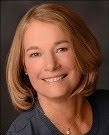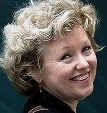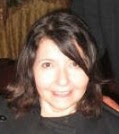by Margaret Dilloway
Books
are miraculous creatures. Returning to them at different stages in your life
yields different results. I think the best books provide multiple layers to many
people, at various points of being.
For
example, my book club recently re-read The Great Gatsby. Many of the women hadn't read it since high school. “All I remembered,” said one reader, “was the big, awesome party.” Some who had thought Gatsby a romantic figure now wanted to slap him. More details were noted and discussed. We all agreed that our high school reading was much different than our adult
reading.
Reading
Little Women as an adult versus a child was different, too. As a child, I
remember how I couldn’t believe Jo refused Laurie. They were best friends, and
he was rich and handsome. What more could she want? How ungrateful, I thought. Plus, Christian Bale played him in the movie! Who in her right mind could turn down a mooning, gentle Christian Bale? As
an adult (but seriously, not until I was at least thirty, I think), I better
saw how they were unsuited for each other, how young they were, and how Jo
actually made the more difficult, mature decision to break it off, recognizing that ultimately they'd both be unhappy, and that she needed to pursue her dreams. What wisdom! Which proves
my mother-in-law’s creed that a person should not get married until age thirty—or,
perhaps, not until you understand Jo’s decision.
Even
“light” kids’ books can be extremely affecting. We are listening to Tales of a Fourth Grade Nothing, by Judy
Blume, in the car. If you don’t remember, it’s about Peter Hatcher, whose
two-year-old brother, Fudge, is a holy terror. I remember reading it when I was
in third grade or so and thinking how crazy and bratty Fudge was. Everything
horrified me. I cried when Fudge ate Peter’s turtle. Yes, his parents bought him a dog, but still. That turtle was gone, washed away by Milk of Magnesia and prune juice (Blume does not shy away from gory details).
As
a parent, I recognize that Fudge’s antics are mostly just regular toddler
stuff. Some of them were just what my son had done, like the mega tantrum Fudge
throws in the shoe store. My son nearly kicked the poor shoe saleswoman in the
face when she was trying to measure his feet. Like Fudge, he was crazy and
completely unreasonable at age two. My kids and I were laughing our heads off.
When
Peter’s mom goes away for the weekend and leaves them at home with their dad,
Dad decides to make a mushroom omelet. It’s a huge omelet and Peter asks how
many eggs Dad used. “Twelve,” Peter’s Dad replies. What’s funny is that my husband
did almost the same thing for me when we first got together, except he used thirteen eggs and no mushrooms. My
kids know the story of my husband’s cooking and laughed along with it. I
remember reading that passage as a kid and thinking nothing of it. Maybe I remembered it on some level and it endeared my husband to me.
This time, I still cried a little when Fudge ate the turtle.











